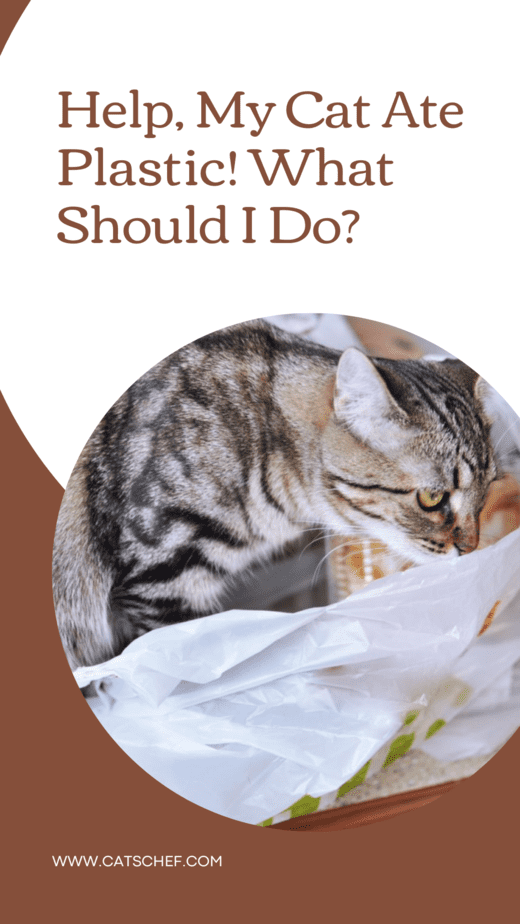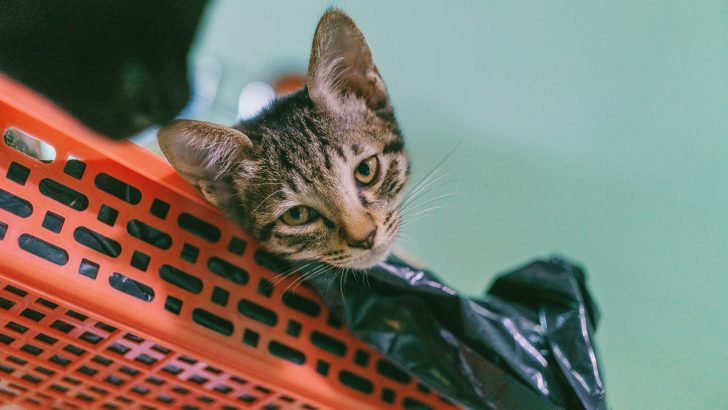You were having a nice day when you noticed that your cat ate plastic. Suddenly, all these questions started flooding your mind. Is she going to be okay? Is there something you can do? How serious is this? How much did she actually eat?
First off, cats eating plastic happens a lot more often than you’d think. There’s something about plastic that makes our felines want to chew on it any chance they get. Sometimes, with all that chewing, they might ingest some of it, too. While it’s common, it’s still not the healthiest thing your kitty can eat.
Our feline’s curious nature often gets her in trouble, and her love for plastic can do just the same. Whether it’s a plastic bag, a container, a straw, or plastic cups, your kitty will be all over them once left unsupervised.
No matter if she plays with it, nibbles on it, or eats it intentionally, it’s best to avoid your cat’s contact with plastic completely. It’s always better to be safe than sorry, especially when it comes to your fluff’s health.
However, accidents happen, and once they do there’s nothing you can do but react accordingly and reduce the damage. If you’ve noticed your cat ate plastic and you don’t know what to do about it, we’re here to help you.
Can cats digest plastic?
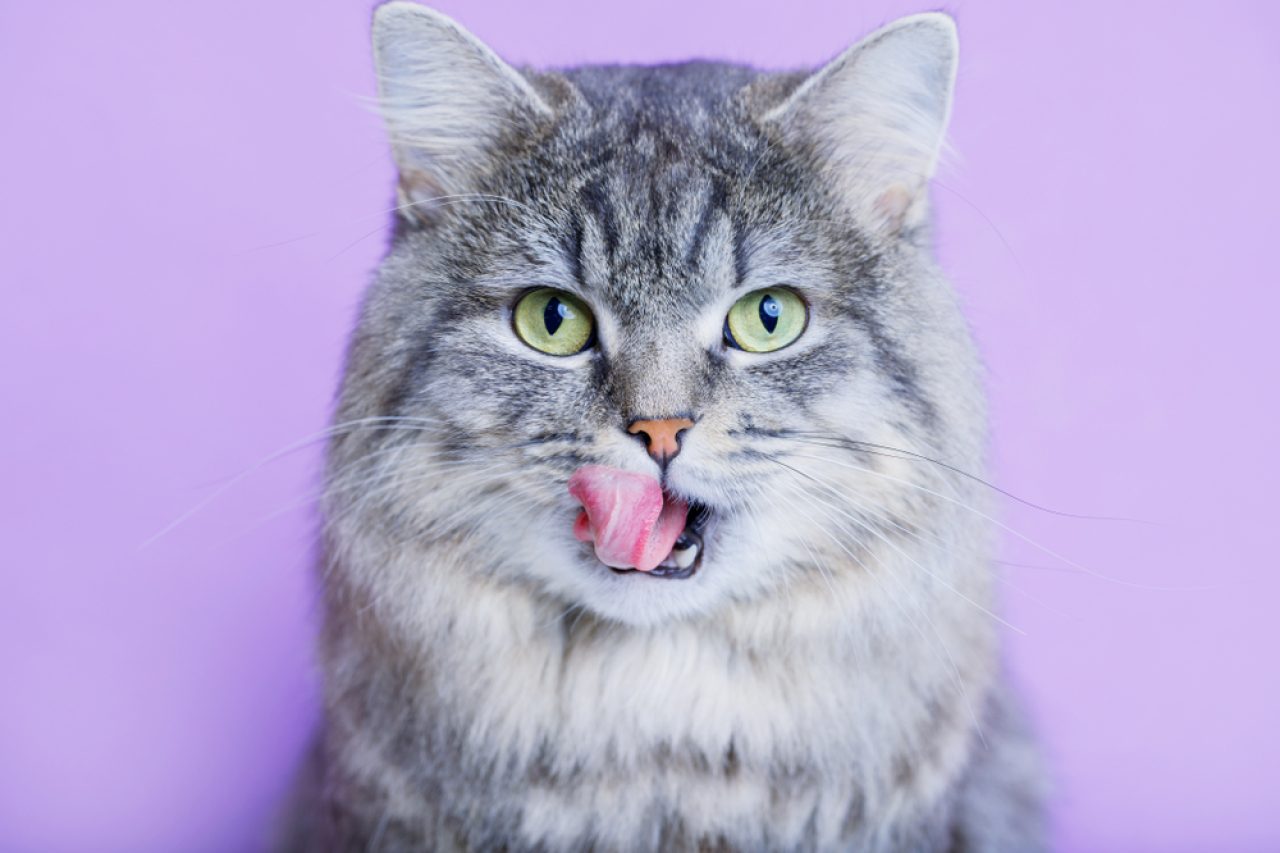
Sometimes, your cat will refuse to eat perfectly fine canned food, but will happily munch on some plastic. They’re not the best at choosing between what’s good for them and what can cause terrible stomach aches later on.
Plastic, unfortunately, isn’t digestible and it won’t break down in your kitty’s stomach. Because of that, swallowing plastic items or small toys can lead to serious health issues, as they can block the passage of food and water through the stomach.
If your cat swallowed smaller pieces of plastic, there are still some risks. If they’re sharp, these pieces can get stuck in the walls of your kitty’s intestines or stomach. In the worst-case scenario, they can even create holes or tears.
If your kitty starts showing any symptoms, don’t wait for them to pass. They’ll lead to serious health issues if not treated on time, so make sure you take her to the vet as soon as possible.
What to do if your cat ate plastic
If your cat ate plastic, the first thing you should do is calm down and not panic, as it could stress out your kitty. Your next move purely depends on the amount and type of plastic ingested. Before you do anything, make sure your kitty’s not choking on any pieces that might be stuck in her throat.
After that, no matter the type of plastic she ate, make sure to get your cat away from what’s left. She won’t learn immediately, and there’s a high chance your stubborn fluff might try eating some more. You have to think for both of you here.
After that, inspect the plastic she ingested. The type and the amount she ate are crucial factors in deciding what steps you should take next.
Soft and small pieces of plastic
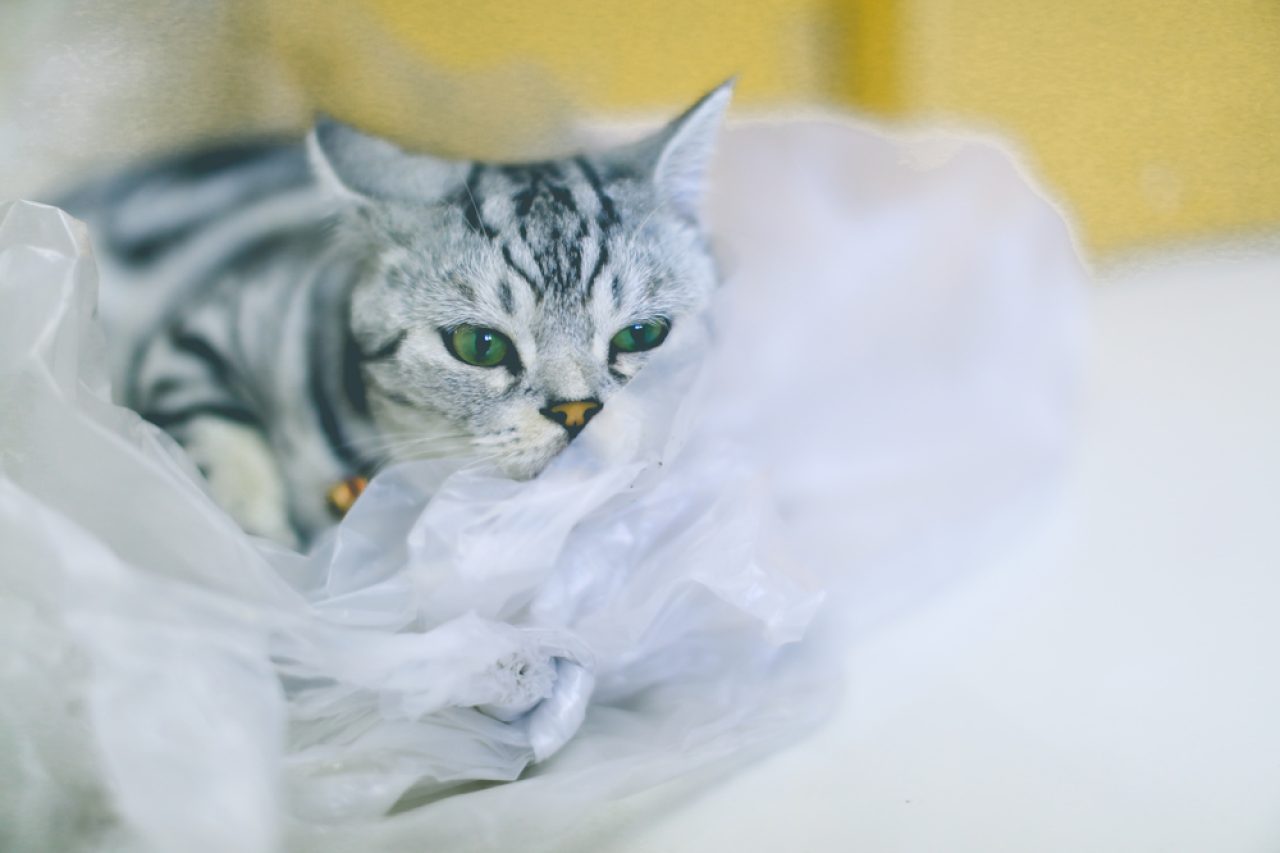
If your cat swallowed a small piece of a bag or any form of soft plastic, there’s probably nothing to worry about. In case your fluff is still a kitten, however, even a small portion of plastic can do damage, and taking her straight to the vet would be the best option for you.
If your plastic-loving fluff is an adult, she’s in a much better position. Simply observing her at first should be enough. It takes anywhere between 10 and 24 hours for plastic to pass through your feline’s digestive tract. We advise monitoring her during that period for any possible symptoms she might start showing.
On top of monitoring your cat, make sure to check her litter box regularly, as it’s the only way you can know for sure that the plastic is out of her system. Usually, cats have no issues getting these small pieces out.
If you see a small piece of plastic sticking out of your cat’s anus, don’t pull it out. You could tear the plastic or your kitty’s skin. The best thing you can do is take your feline to the vet so they can handle it properly.
Simply observing your cat is an option only if your feline is acting normally. This means she’s energetic, playing around, and showing no signs of distress. If there are any changes in her behavior, take it as a possible symptom and take your kitty to the vet.
A large portion of hard plastic
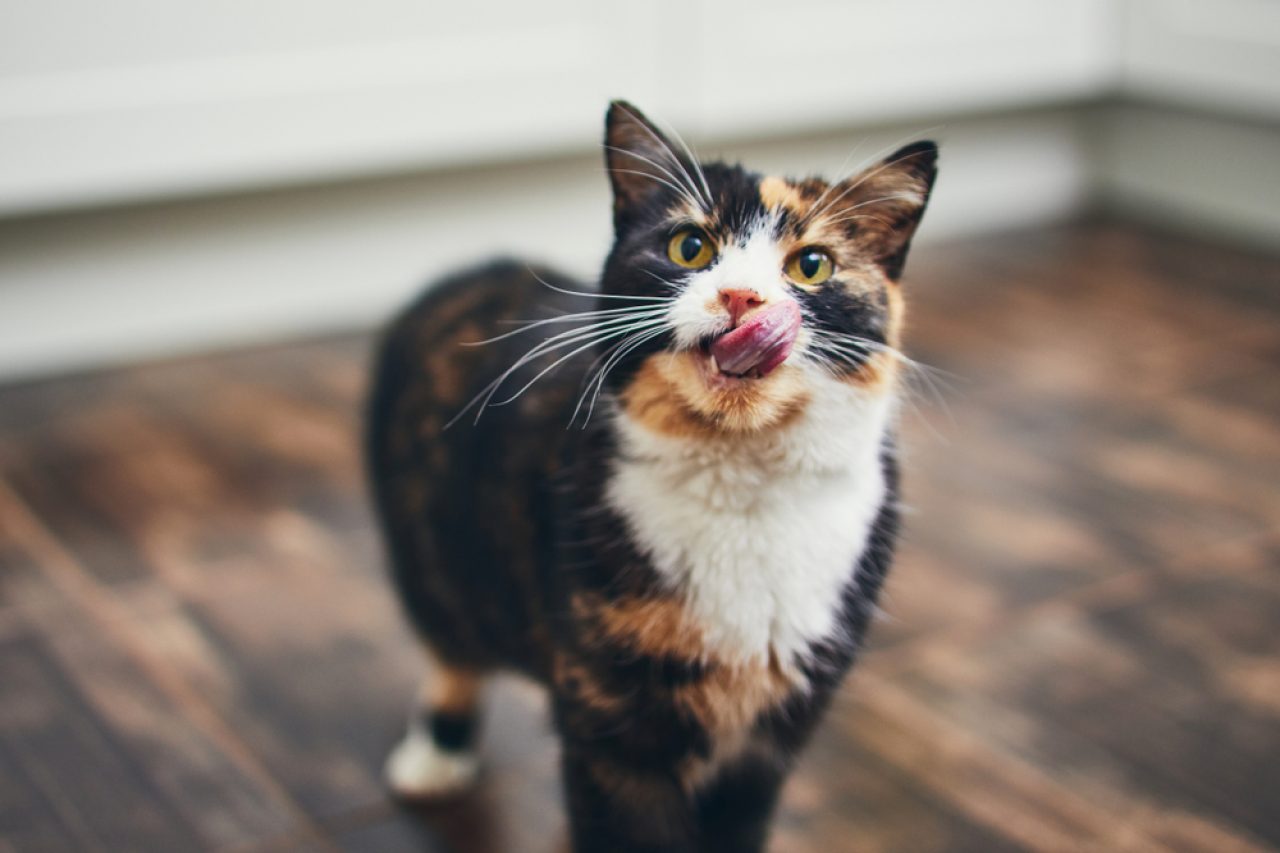
If your cat ate plastic that’s a bit larger and harder, you should be more alert. The bigger the piece is, the higher the risk of obstruction.
If this situation happens, it could interfere with your kitty’s breathing or cause blockage in her digestive tract. These kinds of blockages are especially alarming because, if not treated on time, they could lead to some parts of the digestive system dying.
It’s crucial that you take your cat to the vet if she starts displaying any of the following symptoms:
- Vomiting
- Diarrhea (in case of partial obstruction)
- Constipation (in case of complete obstruction)
- Discomfort and anxiety
- Bloated stomach
- Loss of appetite
- Loss of energy.
If the blockage is left untreated, not only can it create serious damage to your kitty’s system, but the toxins from the plastic can cause even more harm. On top of that, the constant vomiting and diarrhea will cause your cat to lose a lot of water, and she can easily become dehydrated.
If your cat ate a significant amount of plastic, taking her to the vet is your best call, even without waiting for possible symptoms. They’ll do a physical exam and X-Rays, which will give you a better idea of what you’re dealing with. Your cat will be in safe hands, and she’ll be back home in no time.
Why do cats eat plastic?
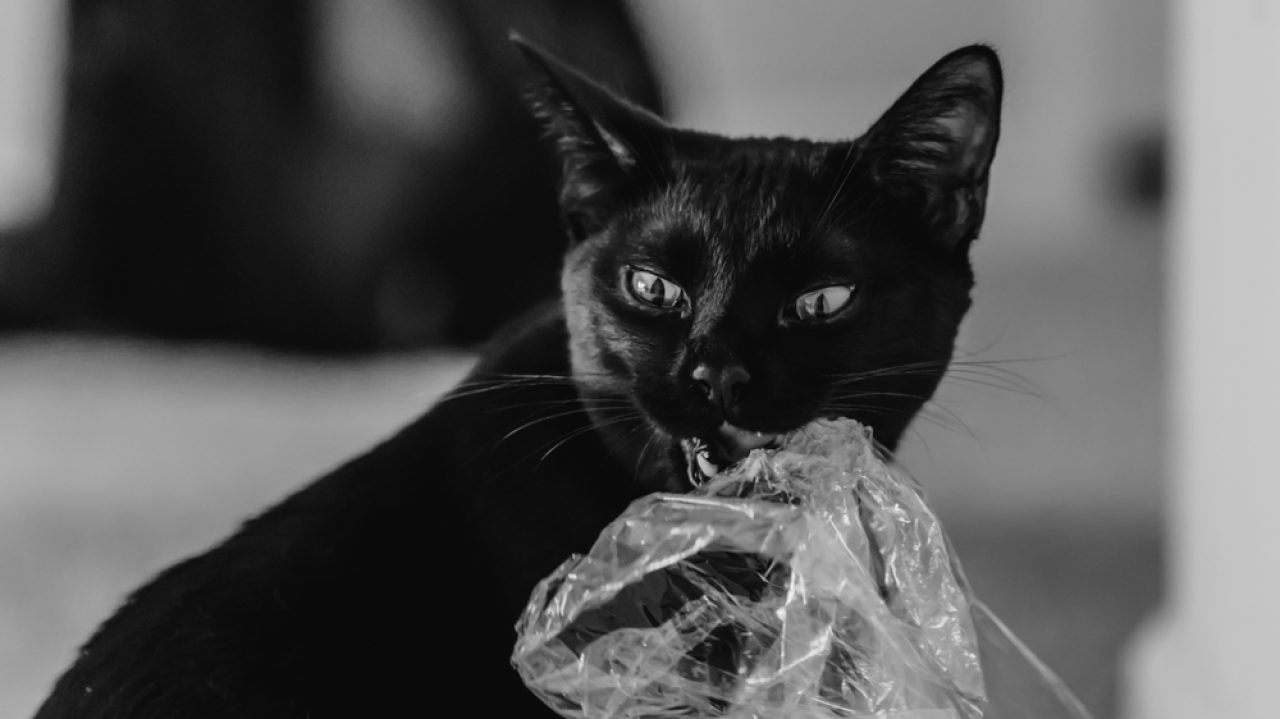
Your cat ate plastic and she ended up being perfectly okay, but it left you wondering why in the world cats do this. What makes plastic so appealing to our fluffs that they eat it no matter how bad it is for their stomach?
We wish we could ask our furbabies, but here are the 4 most common reasons why we think it happens.
1. Stress and anxiety
We all have some weird habits when we’re feeling nervous. Some of us bite our nails, some chew on their sweatshirt laces, and some find the tops of pens and pencils quite appealing. Well, it’s the same with cats.
When our felines are nervous, they’ll chew on just about any inedible item in your house, including plastic. Chewing on these things has a similar effect as biting our nails has on us – it brings our fluffs a bit of relief.
So, if you’re wondering why your cat ate plastic this morning, think about any possible reasons why she might be feeling stressed out or anxious. Once you find the root of the problem, it will be a lot easier to prevent this from happening again.
2. Lack of nutrients
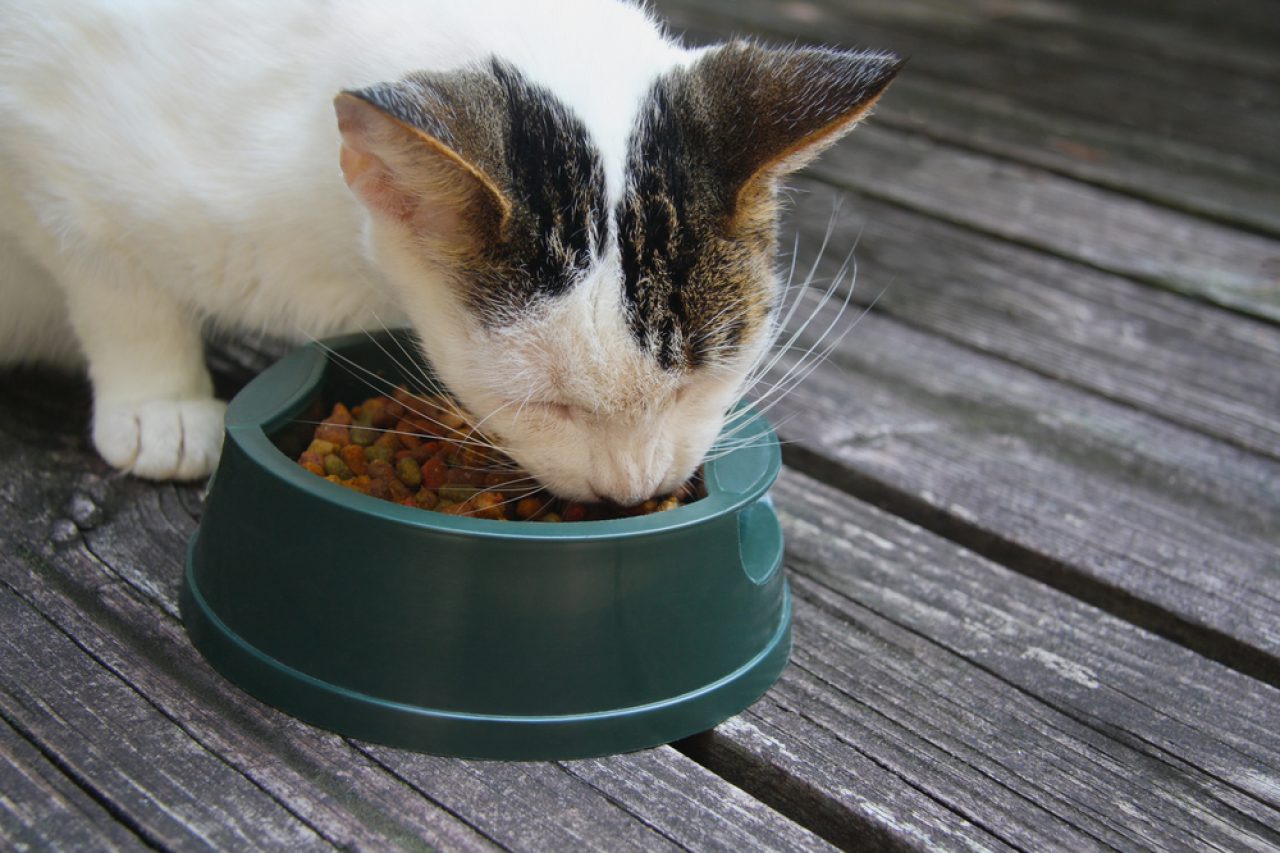
Think about your cat’s diet – is there any way you could improve it and make it a bit more nutritious? The lack of nutrients in your cat’s organism can make your kitty want to chew on other things, including plastic.
This isn’t something your kitty can control. It’s simply her reaction to her body asking for these important substances that help your feline live a long and healthy life. Once you notice your cat might not be getting enough nutrients, it’s essential that you make some changes in her diet.
If you want to make sure you know what your kitty’s eating and how nutritious it really is, we recommend preparing homemade cat food. It’s the best way to keep a healthy diet for your cat and prepare her meals that include all food groups.
If you don’t have any time to do this, pet store food should be perfectly fine. Just make sure you take some time to read the list of ingredients and nutrients, so you have a better picture of what is it that your kitty’s getting inside of her body.
3. Predatory instincts
No matter how nice and loving your cat is, the small cuddle buddy that’s napping in your lap right now has some pretty wild instincts and reflexes. Although they’re one of the many things that make our felines so special, they can also get them in some pretty dangerous situations.
If your cat ate plastic, it could be that the item she ingested seemed like prey at first. These hunting instincts are the main reason why our kitties attack the plastic bags we bring into our homes.
Not only do they look like prey that’s sneaking around our home, but the noise plastic bags make often sounds like leaves under an animal’s paws. Although it may seem funny, hunting plastic bags isn’t the safest game for your fluff, and you should keep her away from them.
4. She smelled food
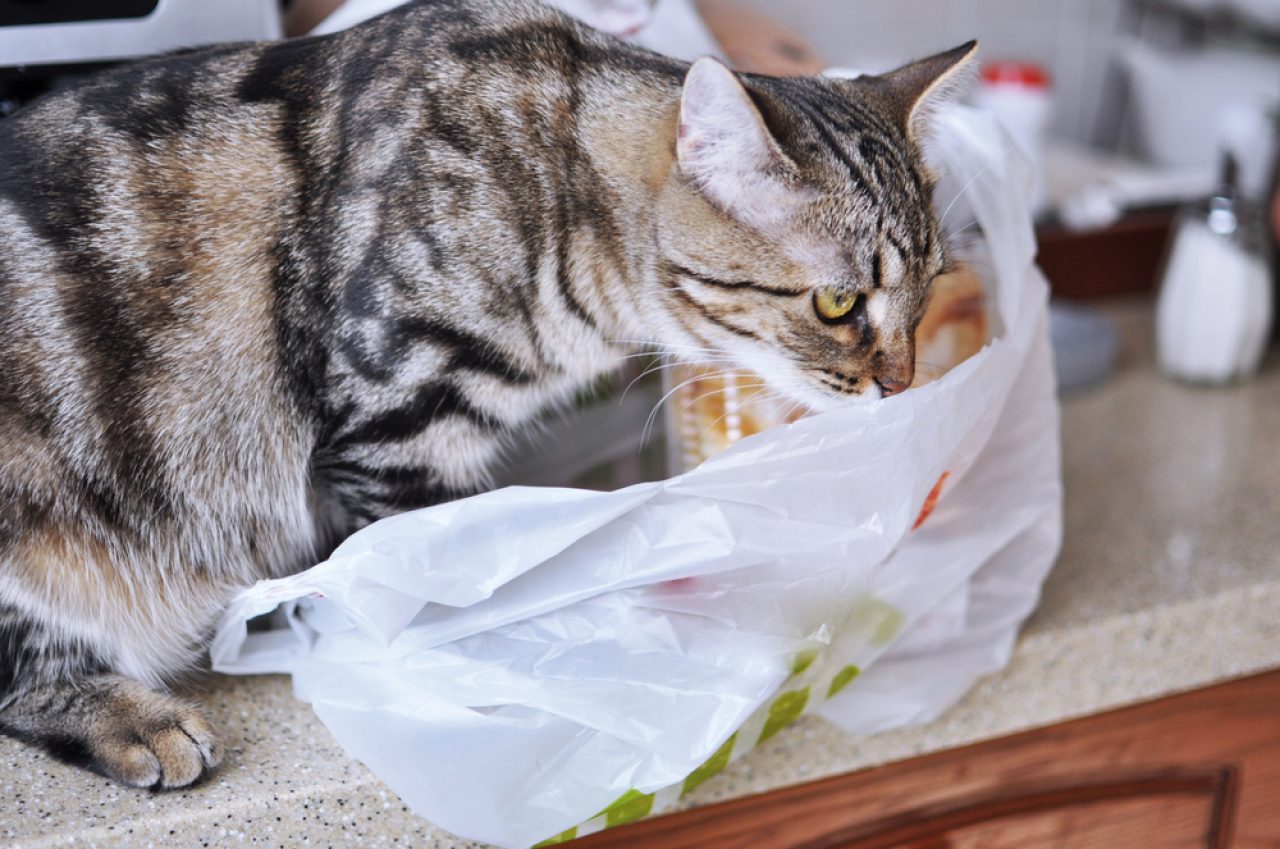
If you ate some delicious pizza off of a plastic plate, you best believe your cat is going to lick and chew every part of it. Our fluffs have great senses, and they can smell that delicious meal even if it’s no longer there.
Because of that, she’ll start licking the plastic plate in the hopes of tasting some, too. She just wants to be included, is that so bad? Actually, yes it is. She won’t get any piece of that pizza, but there’s a high chance she’ll get a piece of the plastic plate it was in.
To avoid this, make sure to keep these used items out of your cat’s reach. Since our fluffs are great climbers, keeping these in high places doesn’t guarantee safety, so it’s best to simply throw them away.
How to prevent your cat from eating plastic
Once your cat ate plastic, there’s not much you can do but wait and see if there’s any damage to your feline’s health. If you’re lucky, your purrer will be just fine, but that doesn’t mean she learned her lesson.
She’ll probably do the same thing the next chance she gets, which is why it’s important to know how to prevent this from happening again. Here are three things you can do.
1. Keep plastic out of reach
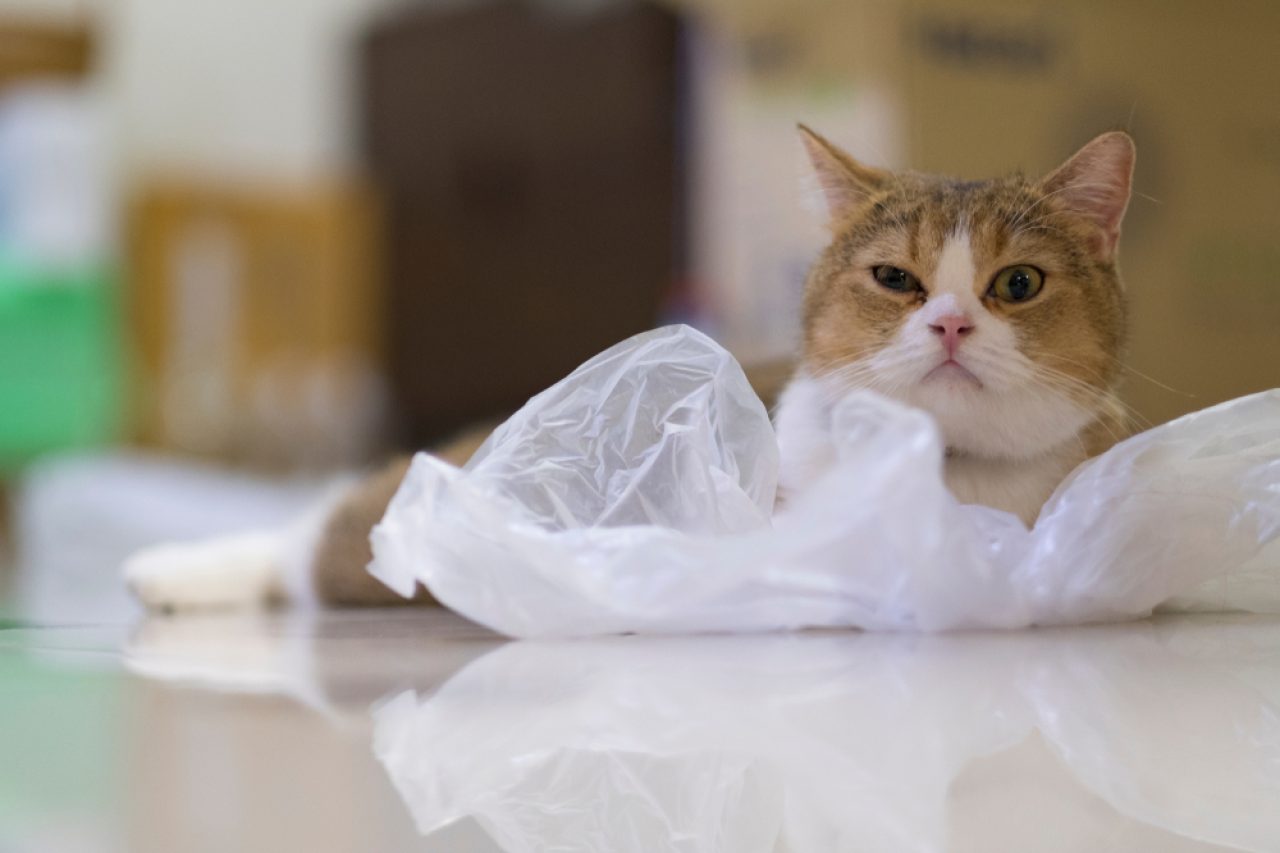
There’s absolutely nothing that can guarantee that your kitty won’t try to make the same mistake again. No matter how many times it happens, if the plastic container smells good – she’ll try to eat it. If the plastic bag rustles and moves – she’ll try to hunt it down. It’s as simple as that.
That’s why you have to do what’s best for her and put the plastic out of reach. Keep your containers hidden and secured, and your plastic bags stored behind closed (or even locked) doors.
2. Wash your plastic thoroughly
Sometimes, it’s not even the sound or movement that made your cat chew the plastic bags. If you brought home some food in it – it probably absorbed some of the smell, and that’s enough for your kitty to go crazy for it.
To avoid this, you should always wash your plastic bags and containers thoroughly. Dish soap should do the trick and help you get rid of the smell. Even if you plan on throwing them away, washing should be essential if you don’t want to wake up in the morning with trash all over your kitchen.
3. Play with your fluff and keep her occupied
Lastly, make sure you spend enough quality time with your fluff. The boredom could be one of the reasons why she ate plastic while you were working this morning. Use cat toys, provide her with a scratching post, and make sure to keep her occupied. It will help you keep both her body and her spirit healthy.
